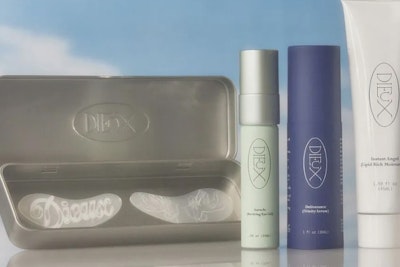Dieux
Solutions-first skincare grounded in safety, sustainability, and transparency

Dieux's Sustainability Rating
Fair
Ingredients
Dieux hasn't made any overall commitments about ingredients to avoid, but states that it doesn't use parabens at this time. It still uses some ingredients that pose a significant threat to the climate, including some petrochemical-based ingredients, uncertified palm oil, and microplastics. It can be very difficult to eliminate these entirely, especially for small brands with limited resources. Dieux doesn't report having any product or company-level certifications.
Containers & Packaging
Dieux has made efforts to minimize the amount of material used in its product containers, including by lightweighting packaging. It uses eco-friendly materials in its product containers and shipping materials, including ones that are recyclable. However, it still uses primarily plastic packaging of a virgin or unknown source for its product containers, which increases waste and energy use.
Energy & Water Use
Dieux doesn't share information on its energy strategy. Dieux has a global production span, which is standard for the industry. Dieux doesn't provide information on any water conservation strategies.
Refill & Reuse
Dieux provides recycling guidelines for its products and packaging that may help avert waste. It doesn't offer any bulk sizes or take back programs for its product containers.
Slow Cleaning
Dieux offers an evergreen collection, which helps prevent production of excess inventory. It takes measures to avoid overproduction or overconsumption, including by offering reusable products.
Marketing
Commons is still evaluating this brand's marketing emails.
Transparency & Reporting
Dieux doesn't have a centralized source of sustainability information, but it discusses its strategy in its FAQ and on its product pages. Dieux shares a complete list of ingredients used in its products, on a per product basis.
Emissions Tracking
Dieux internally measures and publicly reports its product-level emissions in partnership with Bluebird. This data is shared on each product page. It includes a breakdown by scope and identifies end of life waste impacts.
Targets & Offsets
Commons couldn't find emissions reduction targets for this brand. Commons couldn't find evidence that this brand offsets any emissions.
Supply Chain & Labor
Dieux doesn't publish information about its supply chain partners. It notes that it prioritizes partners that are aligned with Good Manufacturing Practices (GMPs). It doesn't publicly share a supplier code of conduct, but does disclose other policy which prohibits forced labor and child labor. Dieux doesn't have a stated policy of regularly auditing its supply chain partners. This may increase human and environmental risks.
Advocacy
Commons wasn't able to find evidence of any trade association memberships or any relevant policy for this brand. Dieux isn't a member of any key advocacy organizations that are blocking climate policy, but it also isn't a member of advocacy organizations advancing climate policy. It doesn't employ any state lobbyists and didn't donate more than $100k to climate-obstructive candidates or PACs from 2018-2024.
Dieux is rated Fair because it has started to improve its processes and packaging, but still has room to grow.
Dieux provides recycling guidelines for all of its products and packaging, which can help consumers avert end of life waste. However, it appears to still use primarily plastic packaging of a virgin or undisclosed source. Dieux works with Bluebird to publicly share product-level LCAs that detail the carbon and waste footprints of each product.
However, it doesn't make any comprehensive commitments to avoid any climate-threatening ingredients, and Commons found evidence of palm oil, microplastics, and other petrochemical-based ingredients in its products.
Our ratings are based on a scale from 1 (harmful) to 5 (best). How we rate →
Get Rewards
Earn for sustainable purchases
Commons rewards you for sustainable purchases from all our Top Rated brands, plus thousands of everyday purchases — from thrift stores to public transit.
Learn more about rewards ->



